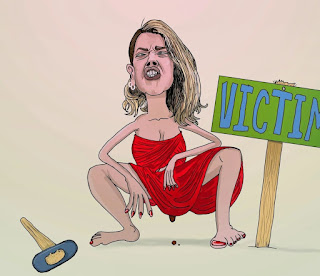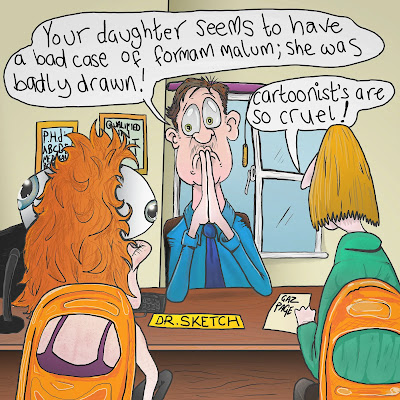Is 'Personality Disorder' Unnecessary Psychiatric Labelling? ?
Should We Replace the Collective Term 'Personality Disorder' With Something Less Harsh?
Years ago, when I was a student mental health nurse, I wrote an article for an NHS magazine called Mental Health Practice. It was an opinion piece, reflecting on how careful we should be when labelling a condition as a personality disorder, because, the meaning carries connotations directed at one's sense of identity. It is counter-intuitive given how invalidation itself significantly impacts on people living with these diagnoses. The name of this condition acts like an ongoing trigger of the condition: We can, for example, argue, that borderline personality disorder, alone, is infact, confining a person to their disorder.
When a trained psychiatrist labels someone, and, someone who (like everyone) will have their own personality, will feel an unkind impact. Immediately, upon diagnosis, their personality is sort of stamped 'out of order,' you could expect a person might feel frazzled or marginalised, because a trusted source delivered such news. In contrast, it's a bit like the clergy saying your soul is evil, your teacher saying that you're thick. Imagination can take the freshly diagnosed individual to a few unkind places.
Alternatives
How? Such terms reject, ignore and can reduce a persons lived experience. I previously identified this as a type of invalidation, a significant thorn in the side of people with problems of which they seek help. We could rename the whole personality disorder umbrella term, using something more fitting, like 'Ingrained Behaviour Pattern' for instance. I wrote this magazine article in a time of active stigma against these particular clusters of conditions. I am unsure if much has changed.
From the magazine:
'IT WOULD be awful to be told that you have a personality disorder. Imagine coming home from seeing your psychiatrist and thinking to yourself: ‘Am I disorderly or is my personality out of order?’' Mental Health Practice.
Are my views the same now? Have I changed my mind?
To answer this the way I feel I need to, I might have to go off on one! So imagine a sun-touched golden haired surfer, paddling her solid surfboard in the blue cool sea. Without recognition of what water is, nor any grasp of the concept of swimming, a shark could swim through the water and bite hard into the board crushing it with it's powerful jaws. Mechanised and cold, not one ethical thought of doubt crossing it's mind, no fear of spiritual consequence; the clockwork dynamics of reality simply playing out. It's the multifactored determinants of our world that drove the genetic evolution of that shark.
Human Minds, Bodies, and Awareness
Modern sharks instinctively swim, hunt and eat as a consequence of evolution. The natural world, has made many creatures like bio-organic robots. Even our lives are dominated by biological pullies and cogs, and even much of our human conduct is chemically triggered: Grehlin and leptin regulate our desire to eat and to stop eating. Melatonin and adenosine make us tired, cortisol makes us more hypervigilant, do you see where I'm going?
We often describe sharks with vocabulary rich with soulless words, like cold, spiritless monster, we call them the perfect hunters and killing machines. Yet, we cannot for a second see ourselves that way, because, self-evidently, axiomatically, we experience and articulate being alive! Bollocks to a shark.
I see myself as the awareness of a human, not just the human itself. Fancy myself as a bit of a mystic, but still, I honestly know I'm a bit of a shaven wookie, a Homer Simpson. The human animal is just as mechanical as the shark. Phenomenal consciousness within any form will vary: we can't know the sharkness of a shark any better than the shark would grasp the meaning of the German word for shark! Hai.
What's this got to do with Personality Disorders?
It has everything to do with personality disorders because we humans defied the laws of the natural world by denying our own physical instincts full control over us, we developed reason, logic and most of all discipline. Today, we are liberated, resulting with our awareness of what a 'person,' is, from the word 'persona' meaning mask, to appreciate that social etiquette or conduct has become personality. The etymology and development of personality is social, pertaining to conduct and assimilation.
From a Spiritual Perspective
It's a mistake to assume your personality is you, rather than your mask or social presentation. This persona is comprised of aspects of the mind, and one's own physical attributes, (namely genetics). Psychiatry should be looking at concepts surrounding social assimilation and ingrained behaviours not highlighting a faulty personality.
How we see Ourselves and Others
In all thinking creatures, lots of well organised braincells enable higher processing. This means the performance of certain tasks; unlike humans, copious olfactory neurons give dogs their superior sense of smell; sharks can detect blood from miles away. As we humans evolved; developing reason, morals, and our arts and sciences, we suffered for it.
Our Complicated Nature
We realised the harsh realities surrounding death on an intellectual level. We knew mourning, and grasped impermanence, existensialist fear and still sugar-coat it. Of course, we avoid such things, pleasure seeking behaviours and comfort take pride of place.
Unlike snakes, sharks and chickens who are unburdened of the finite implications of non-being, no evidence shows all animals wrestling with nihilistic trappings of athiest philosophy; our, uniquely human words, and complex and stupid ways such as flat earth actvism, our religious teachings etcetera are testament to the fact that we are a species that will define itself.
Putting it to Bed
To end this madness, let's consider thought that is considered to be caused by the mind, not bodily mechanics. First off, mathematics, we can say, isn't inspired by a biocommunicator like grehlin or melatonin — disciplined discussions don't require key neurotransmitters to drive a person into a debate. The pious meditations we choose to practice don't result from peptides, but from the self which we need to grow. A life of embracing egotism, and hedonism are not helpful for personalities that endure disorder.That little idea is quite sweet. We are more than just crude matter and desires. We are the experience of our experience, 'being' has layers'. If you've been told your personality isn't quite orderly enough, or you've had social conduct or assimilation issues, you have the opportunity to practice self awareness with meditation. The answers are with you.
Do you think the term 'Personality Disorder' needs updating?

.jpg)
.jpg)



Comments
Post a Comment
What are your thoughts?